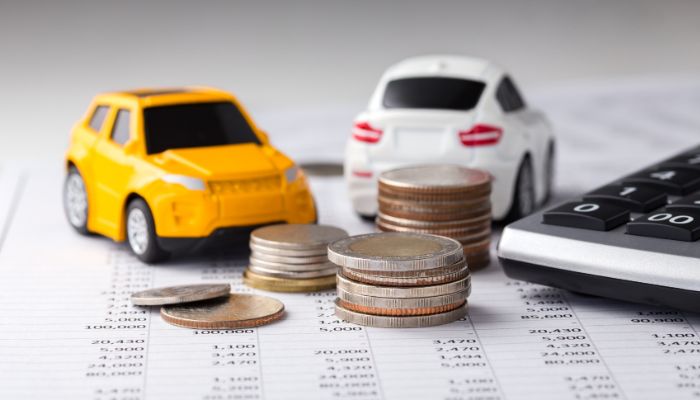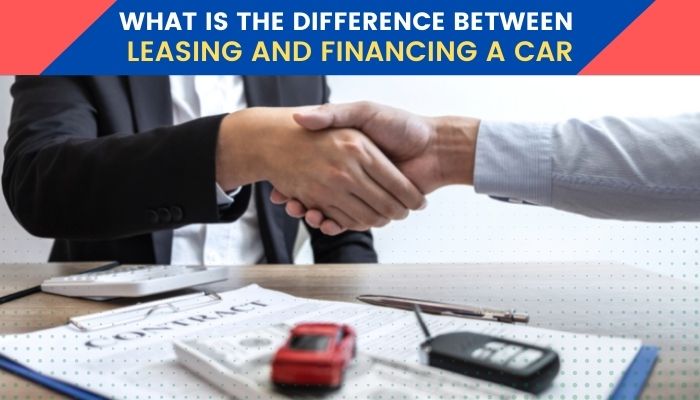How To Get a Long Term Car Lease No Credit Checks?
One of the easiest ways to get a new or near-new car with minimal monthly payments is to enter into a long-term lease. However, car dealers in the United States require you to have a credit score of between 620 and 679. With that credit score, you can get a car lease deal but without the lowest possible rates. If your credit score is 680 to 739, you can enjoy the most appealing deals from dealers. The exact credit score largely depends on the requirements of each car dealership.
Can you get a long-term car lease with no credit checks or a credit score of below 620? If your credit score is below par, getting a car lease can prove difficult but more straightforward than getting an auto loan to buy a new car. This article discusses everything you should know about auto leasing and the effects of poor credit on your ability to get a lease. Read on for more details about car leases without credit checks.
What Is a Car Lease?
A car lease is essentially an arrangement where you rent a car for the long term. Different car dealerships have additional terms for their leases. Using a lease, you can get possession and use of a vehicle for a long time while paying minimal monthly fees. In essence, you do not own the car, but you only get to use it according to the lease agreement rules. Some standard rules include the following:
- Restrictions on making significant changes to the vehicle
- The requirement to stay within a given mileage annually when driving the vehicle
- Undertaking to return the car to when the dealership ends
- The option to buy the car when the lease ends
Auto Leasing Costs and the Effect of Poor Credit
Leasing a car means you agree to rent it for several months (usually 36 months). You can return the vehicle to the dealer in a “like-new” condition when the lease expires. The monthly lease payments depend on two main factors – amortization, which is a car’s loss of value during the time the lease is expected, and interest charges.
1. Amortization/Depreciation
Amortization is the amount that represents the “principal” of the lease payment. The car leasing company calculates it by subtracting the car’s residual value from its purchase price (capitalization cost). Residual value refers to the value of the vehicle at the end of the lease period. That’s the depreciated value of the car when you return it to the dealership. On the other hand, the capital cost is the vehicle’s value at the beginning of the lease.
For example, if a car valued at $40,000 today has a residual value of $19,000 after 36 months, the amortization is $21,000. A car lease provides you with a loan on the amortization amount. After calculating interest, the final amount is divided by 36 months to get the amount you should pay monthly.
2. Interest Charges
Car dealerships usually calculate interest in two ways – money factor and lease factor. The money factor is usually a tiny factor written as 0.0030, which you can negotiate that figure with the leasing agent.
It is possible to convert this figure to a lease factor by multiplying 0.0030 by 2400, which translates to a 7.2% interest rate. The money factor on a car lease determines the interest rate you should pay for the duration of the lease. If you have a poor credit score and are considering a long-term car lease with no credit checks, you might be required to pay a higher interest rate.
3. Acquisition Fee
An acquisition fee is charged for originating the lease and is usually $1,000 or less. Typically, leasing companies charge the same acquisition fee on every lease, regardless of the monthly installments. An acquisition fee is typically non-negotiable and can be paid upfront or as part of your monthly charges for the entire duration of the lease.
4. Security Deposit
Most auto leasing companies may require you to pay a security deposit equivalent to one month’s lease installment. At the end of the lease period, the company refunds the security deposit if you return the car in good condition. Anything contrary to that would mean forfeiting the sum for use on clean-up and any repairs. If you have a less than perfect credit score, the company may require you to pay much more as the security deposit.
5. Gap Insurance
Gap insurance is optional. It covers you in case you get involved in an accident with the leased car. Your auto insurance has to pay some money to cover the loss. The difference between what the insurance company pays and the residual car is called gap insurance. While not all leasing companies require you to have gap insurance, those may embed it into your monthly lease payments.
6. Capitalization Reduction
Capitalization reduction is an optional upfront payment similar to a down payment. When you make this payment, the leasing company usually reduces the base price for calculating amortization. In our example, a $40,000 car could have a $19,000 projected value. If the leasing company applies a capital reduction of $4,000, the car’s starting price is reduced to $36,000, and the amortization amount from $21,000 to $17,000.
7. Disposition Fee
Leasing companies charge a disposition fee, which is $500 or less, on termination of the lease to cover the cost of car washing and detailing, and document processing. The leasing company waives the fee if you choose to buy the vehicle in the end. Instead, it deducts it from the security deposit refund if you’re supposed to get one.
How to Lease a Car with Bad Credit?
You can rent a car with bad credit, which means you have a score below 620. Since a lower credit score indicates a level of financial irresponsibility, you may fall into trouble when trying to get a car lease. The following are some of the strategies you could use:
1. Ask a Relative to Co-Sign for You
Applying for a car lease with poor credit is possible if you ask a relative with a good credit rating to co-sign for you. By signing against a lease, your relative agrees to take it over when you fail to make your monthly payments. Besides, a co-signor helps you build your credit to the adequate level for qualifying for a car lease.
2. Build a Larger Down Payment
You can make yourself more attractive for a long-term lease by building up a substantial amount of money as a down payment. If you know you have bad credit, take time to save move until you have a considerable sum to give to the leasing company as a down payment. That may mean putting off your quest for a car lease for a little longer until you have saved enough money.
3. Shop Strategically
Sometimes, it takes strategic shopping for you to find the best car lease deals. Some leasing companies get desperate after staying with a car in the lot for longer and can give you a lease deal if you approach them. The best time to get lease deals is at the end of the year when dealerships are getting ready for vehicle manufacturers to release new year models. At that time, they are prepared to off-load any vehicles that have stayed with the dealership for too long.
4. Negotiate with the Dealership
It can surprise you how much car dealerships are willing to negotiate with clients over the cost of a lease. No matter how attractive the deal is, always try to talk to the dealership. You could try to speak to the dealership to reduce the monthly payments to lengthen the duration of the lease. That depends on which option you find the best.
5. Work on Rebuilding Your Credit
This option works well for those willing to put off their need for a vehicle. If you can wait for a year or so, work on improving your credit score to at least 620. That can help you avoid paying higher interest rates or raise a substantial down payment. You can build your credit score by taking and repaying small loans or using your credit card more frequently.
Effects of Renting a Car with Bad Credit
It is foolish to expect a long-term car lease with no credit check. If you have bad credit, the leasing company won’t treat you like clients with a better credit rating. The following is what you should expect from the dealership:
1. Higher Payments at Deal Signing
A less than satisfactory credit rating doesn’t mean that the car dealership won’t consider you for the lease. After once the company accepts to give you a car lease deal, it follows it up by asking you to pay more at signing. Also, you could end up making extra monthly payments of between $10 and $125.
2. Disqualification from the lease
The car dealership may disqualify you from the lease on the pretext of your lower credit rating. The dealership cannot trust you to make monthly payments after signing the deal based on existing evidence. That’s why it helps to have a backup plan, such as a higher down payment, to convince the company that you can deliver on your promise to pay.
3. Leasing a Used Car
Why should you insist on leasing a new car when your credit score is less than adequate? If the leasing company offers you a used car, take it. After all, having a used car is better off than having no car at all. You could even apply for a used car from the get-go. With this special deal, you can build your credit score and qualify for a better car in the future.
Advantages of Leasing a Car with Bad Credit
- It has low monthly payments
- Ability to make substantial savings
- Availability of extended warranty coverage
- It can help improve your credit rating
Disadvantages of Leasing a Car with Bad Credit
- Results in higher interest rates
- You won’t own the vehicle when the lease expires
How to Improve Your Credit Score?
If an auto leasing company turns you down because of bad credit, you can either react badly or work to improve your credit score to qualify for the lease next time. Carefully read the reasons why the dealership rejected your lease application in the first place. That information is invaluable since it provides areas to focus on to improve. You can rebuild your credit score by:
- Avoiding missed or late debt payments
- Reducing credit card balances by paying them off
- Refraining from new credit accounts no matter how pressed you are
Conclusion
While it is not possible to get a long-term car lease with no credit check, some car dealerships can still qualify you for a lease with a low credit score. That’s good since it gives you access to a car when you do not qualify for one. Also, it can help you improve your credit score as you keep making monthly payments. However, it may result in higher interest and monthly payments. Sometimes, the car dealership may only lease a used car if you have a less than satisfactory credit rating.
Frequently Asked Questions (FAQ)
Can I have a long-term Car Lease with No Credit Check?
No. All lease agreements, including those involving cars, require a specific credit score, which necessitates a credit check. Once they have done the credit check, the leasing company can decide if you qualify for the lease. However, some providers can approve a lease even for clients with a bad credit score.
Can I get a car lease with no credit history?
No. Like any other form of credit, a car lease requires a credit score, which means having a credit history. Even with a bad credit score, you can still qualify for a car lease.
Does a car lease require a credit check?
Yes. Leasing companies usually carry out a credit check on those seeking out leases. That helps the company know how much interest to charge you and how much you can pay monthly.
Can you get a lease with a credit score of 500?
Dealerships consider credit scores as a precaution of the client’s ability to repay the lease amount. Even though a credit score of 500 is low, you can still get a lease if you meet certain conditions.




